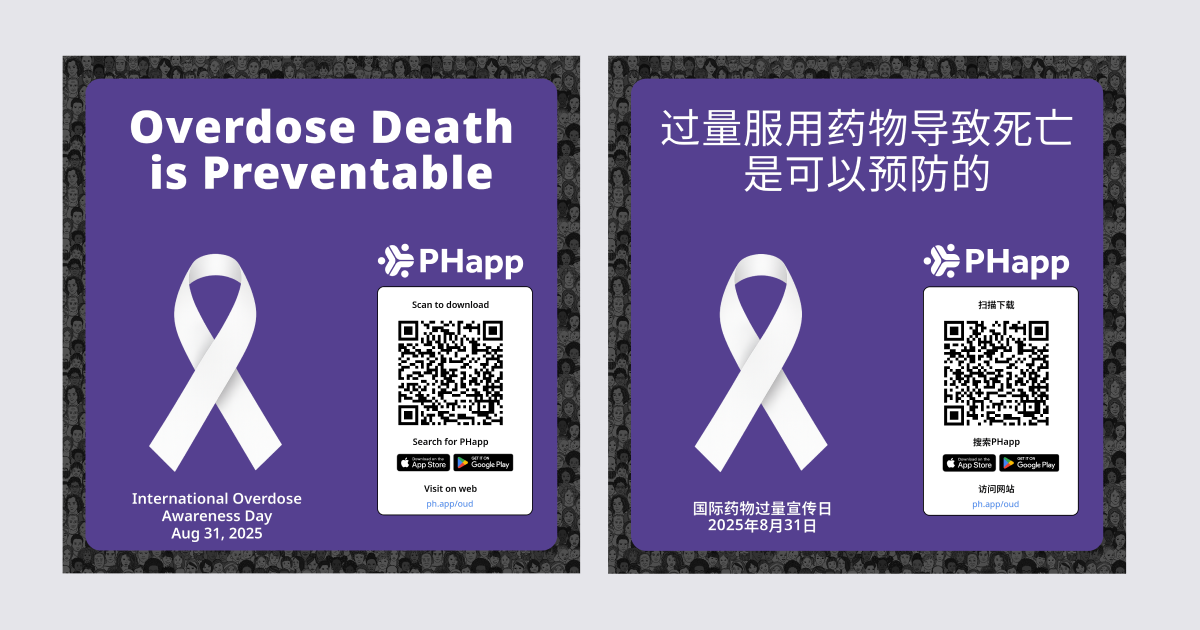How to extend ENX with WeHealth in one week. Really!
Exposure notification apps are proven to be effective in slowing the spread of COVID-19 and are a critical component to a successful government...
Each year, August 31st marks International Overdose Awareness Day (IOAD), the world's largest annual campaign to end overdose.
Today, PHapp has launched public education material for Opioid Use Disorder (OUD) that is linked to personalized resources available in every community.
You will now see educational information on what is OUD, the signs and symptoms, what to do when someone is overdosing, how to prevent oud and reduce exposure, treatment options and key statistics.
You can also learn about where to find Naloxone near you, and how to use it to save a life. All 3,000+ health jurisdictions can customize this part to point to local resources they have made available. If your community has not yet customized it, it will default to US level resources.
Today we also launched online and print campaign materials to spread information about International Overdose Awareness Day and to encourage people to act by learning about resources near them to help prevent overdose deaths. By making the information simultaneously available in 50+ languages, and linking to local resources in each community, PHapp turns education in to action.



From CDC:
This IOAD, we encourage unity and collective action against overdose.
Overdose knows no boundaries, so our efforts must connect the many voices impacted by overdoses.
We are united in grief, empowered together to transform loss into hope and action.
Hashtags: #IOAD2025 #OverdoseAware #EndOverdose #OneBigFamily #DrivenByHope
The goals of IOAD are to:
• Honor the lives of loved ones who have died from overdose.
• Show support to people who use drugs and those in recovery that they are valued.
• Continue to raise awareness about the risks of drug overdose.
• Share information on available prevention, treatment and recovery support services.
• Promote evidence-based practices and strategies to prevent and reduce drug-related harms.

Exposure notification apps are proven to be effective in slowing the spread of COVID-19 and are a critical component to a successful government...

Q: What does the success of the NHS app tell us about other EN apps?

On May 11, 2023 the Public Health Emergency (PHE) ended. Due to this the National Key Server (NKS), National Verification Server (NVS) and SMS...
